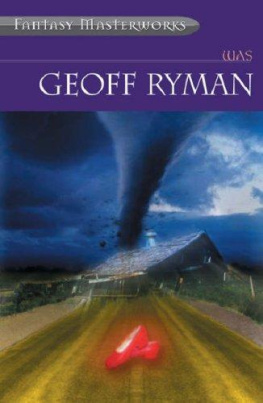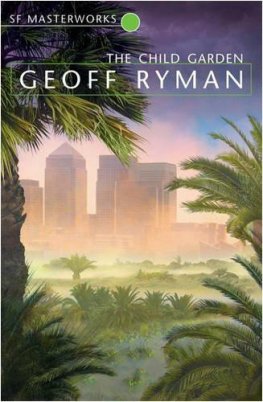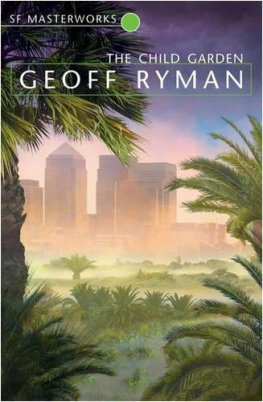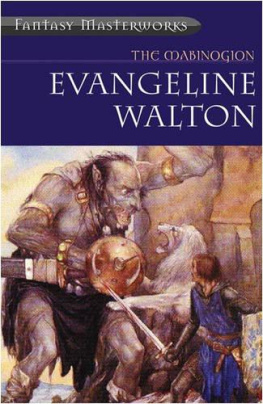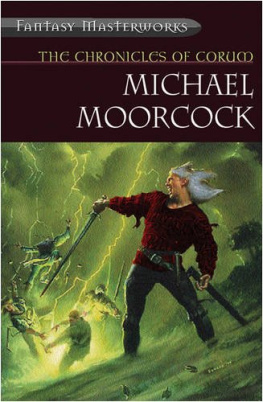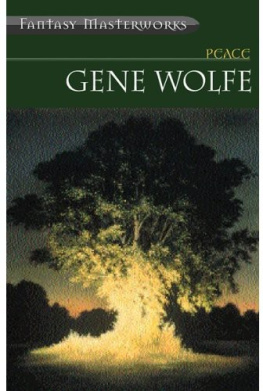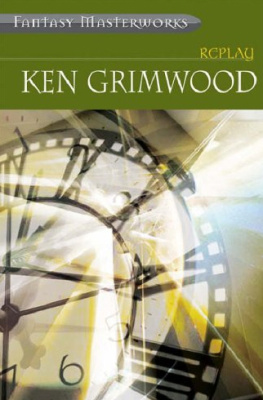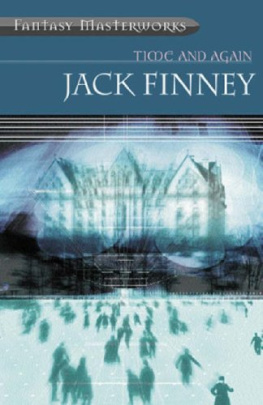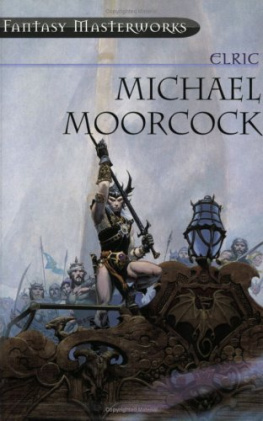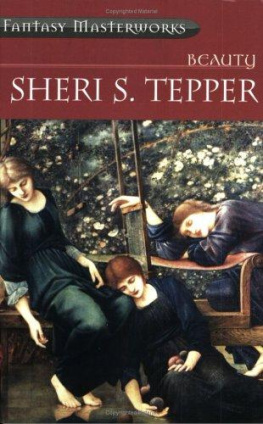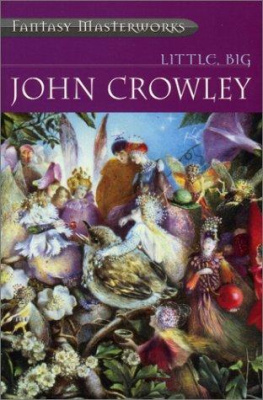Geoff Ryman - Was (Fantasy Masterworks 43)
Here you can read online Geoff Ryman - Was (Fantasy Masterworks 43) full text of the book (entire story) in english for free. Download pdf and epub, get meaning, cover and reviews about this ebook. year: 2005, publisher: Gollancz Paperbacks, genre: Art. Description of the work, (preface) as well as reviews are available. Best literature library LitArk.com created for fans of good reading and offers a wide selection of genres:
Romance novel
Science fiction
Adventure
Detective
Science
History
Home and family
Prose
Art
Politics
Computer
Non-fiction
Religion
Business
Children
Humor
Choose a favorite category and find really read worthwhile books. Enjoy immersion in the world of imagination, feel the emotions of the characters or learn something new for yourself, make an fascinating discovery.
- Book:Was (Fantasy Masterworks 43)
- Author:
- Publisher:Gollancz Paperbacks
- Genre:
- Year:2005
- Rating:5 / 5
- Favourites:Add to favourites
- Your mark:
- 100
- 1
- 2
- 3
- 4
- 5
Was (Fantasy Masterworks 43): summary, description and annotation
We offer to read an annotation, description, summary or preface (depends on what the author of the book "Was (Fantasy Masterworks 43)" wrote himself). If you haven't found the necessary information about the book — write in the comments, we will try to find it.
Was (Fantasy Masterworks 43) — read online for free the complete book (whole text) full work
Below is the text of the book, divided by pages. System saving the place of the last page read, allows you to conveniently read the book "Was (Fantasy Masterworks 43)" online for free, without having to search again every time where you left off. Put a bookmark, and you can go to the page where you finished reading at any time.
Font size:
Interval:
Bookmark:
Table of Contents
This is the use of memory:
For liberation-not less of love but expanding
Of love beyond desire, and so liberation
From the future as well as the past. Thus, love of a country
Begins as attachment to our own field of action
And comes to find that action of little importance
Though never indifferent. History may be servitude,
History may be freedom.
T.S. Eliot, Four Quartets
Chapman's favourite film was The Wizard of Oz, in which Judy Garland travels continuously looking for the lost farm, the loved faces
And here is Judy, Chapman's first love, who had the same name as Garland
Vince Smith, the director of the YMCA camp where Chapman worked for seven years: "He was particularly good with children, like a pied piper. I didn't see a fault in Mark. His camp name was Nemo." He gave that name up when someone told him it meant Nothing. And Cindy, who was a sobbing child in pigtails when Chapman comforted her in his camp: "He truly cared for me and that is very odd for an adult." The last time she saw him she backed off. "His face looked different. He had shark eyes and no feeling in his face."
In Hawaii he tried to kill himself "You could always read Mark's mind like a book," said a fellow worker. We know the book. Holden Caulfield found adults phoney and Chapman fixed on Lennon, now living as a rich recluse, as the ultimate phoney
Nemo does not, of course, mean Nothing. It means a Nobody.
Nancy Banks-Smith, reviewing a television documentary about Mark Chapman, The Guardian , February 3, 1988
Wilbur F. Jewell killed himself just before Christmas. No one seemed to know why. Some people blamed the weather.
It had been a strange December that year. Thermometers showed eighty-eight degrees if they were on a south wall out of the wind. It made the children restless, people said, to have summer in the middle of winter.
Then, as hard and sudden as a fist, winter slammed into them. The snow piled up in drifts, and schools were closed. Everything closed, even the sky which hung dark and low and heavy overhead. A few days before Christmas, Wilbur Jewell went missing. Uncle Henry and Will's father spent a day out in the snow looking for him. Dorothy was rather excited. Will had always talked of getting out of here. She thought he had done it. She thought he had run away and got on a train and become a steamboat pilot on the river or even gone out to the Territory, to join the Indians. She wished he had taken her with him.
Wilbur had walked clear to the other side of Manhattan to the telegraph poles.
Dorothy was in bed, listening, when she heard Uncle Henry's boots clunking up the stairs.
"The boy went and hanged himself," was all he said.
"What! God have mercy. Has his mother been told?"
There was silence for an answer.
"Well we just got to go there," said Aunty Em.
"She don't want nobody now, Em. She just sits in the corner rocking, and there's no comforting her. She don't want comfort. She just knocks it away."
"Oh! It just tears the heart! What does she say?"
Dorothy heard Uncle Henry slump down onto the chair. "She says he was a happy boy. She just says that over and over. He was a happy boy. And she says how she doesn't have anything to remember him by. Bob told me outside, he was going to get a photographer in. Photograph the remains."
"Horrible habit. I suppose they'll have a wreath with it that says, 'Sleeping in the arms of the Lord.' "
"It'll be all the woman has."
Dorothy could stand it no longer. She could very finely gauge what would annoy Aunty Em, what was safe and what was not. She could sense from the fine fierceness in Aunty Em's voice that almost anything would be all right.
"What's happened to Wilbur!" she said, walking out from behind the blanket.
"Oh, darling, did you hear?" Aunty Em sounded worried for her, instead of angry. Dorothy had been right.
"Wilbur's dead, Dorothy," said Uncle Henry.
Aunty Em tried to hug Dorothy. She somehow always missed, all angles and elbows. "We just have to hope that he's happy in the arms of the Lord," she told Dorothy.
Dorothy did not need to be told what dead meant.
"Was it the Dip?" she asked very quietly.
"Oh honey, now, it wasn't. Wasn't your fault at all." Aunty Em tried to kiss her. "No."
They weren't going to tell her why her friend had died.
"What does hanged mean?"
"Dorothy. That's something you must never mention. If you talk about it, it will only make it worse for everybody. I'll tell you, but you must promise not to talk about it. Say yes."
"Yes, Ma'am."
"It means he killed himself, Dorothy. I'm not going to tell you how because it'll just give you nightmares. But he killed himself."
Dorothy didn't ask why. She knew. It was a way of leaving. She nodded and went back to bed.
"Dorothy?" asked Aunty Em, her voice trailing after the child. It was Aunty Em who needed to talk. Dorothy didn't. Dorothy threw herself on the tick mattress and pretended to be asleep. She heard Aunty Em pull back the blanket to look in.
"She's asleep."
"That's a blessing. Leave her be."
Dorothy listened again.
"I knew there was something wrong with that boy."
"He was all right, Em."
"There's something wrong, Henry, with a boy that age who prefers to play with little children."
A few days before, Dorothy and Wilbur had made angels in the snow on the top of the hill. They had lain down on their backs and waved their arms up and down. That made a shape like wings. The trick was to stand up from the snow and then jump away, so that there were no footprints leading from the image. Then you could say that it was a place where an angel had gone to sleep. Will would lean out and lift Dorothy out of hers. So hers were the best.
Then Dorothy and Wilbur and his little brother, Max, had made three snowmen. Dorothy loved the way the snowballs got bigger and bigger, in layers like a cake, and the crunching noises they made on the snow underneath. Will helped them roll the biggest snowball and lift the smaller snowballs up on top. He would make snow castles.
Wilbur made an ice road. He carried buckets of water up to the top of the hill and poured them out on the ground to freeze. You didn't have to walk on an ice road. You would run at it and stop walking. And then you'd slide. It was like flying. They made an ice road all the way down the hill. They could ride down that inside hessian sacks, spinning and giggling and landing in a heap at the bottom. It almost never hurt. When it did, Wilbur would get worried and rub Dorothy's ankles until they were better. He never hit her, like Max did. He would stop Max from hitting her. "You don't hit girls," Wilbur said.
"Why not?" said Max.
"Because they're smaller than you. If you hit her, then I'll hit you, just so you know what it's like."
"And I'll tell Mama."
"And I'll tell Mama that you were hitting on Dorothy, which is why I hit you."
Max thrust out his jaw with hatred of his bigger, stronger, wiser brother and walked away, back down the hill, leaving his snowman behind.
Max was all right most of the time. You needed Max for most of the games. But it was nicer when it was just Dorothy and Will. After Max had gone, Will and Dorothy talked together about how much they hated Kansas.
"Just a big pile of dirt," said Wilbur.
"Just a big pile of dirt and nothing to do," said Dorothy.
"Nothing to do but work."
"You just got to wait and wait."
"And do your chores or go to school." The way Will said it made it sound like something disgusting.
Font size:
Interval:
Bookmark:
Similar books «Was (Fantasy Masterworks 43)»
Look at similar books to Was (Fantasy Masterworks 43). We have selected literature similar in name and meaning in the hope of providing readers with more options to find new, interesting, not yet read works.
Discussion, reviews of the book Was (Fantasy Masterworks 43) and just readers' own opinions. Leave your comments, write what you think about the work, its meaning or the main characters. Specify what exactly you liked and what you didn't like, and why you think so.

